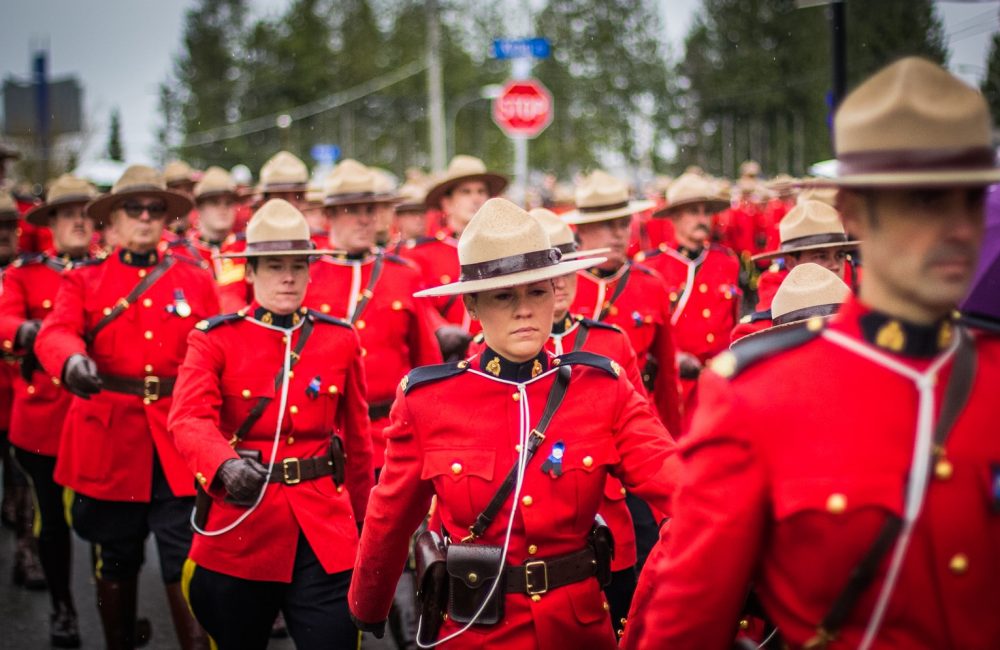Canada, often overshadowed by its southern neighbor, the United States, is nonetheless a nation with significant global influence. While not traditionally considered a superpower, Canada plays a vital role in international diplomacy, economic cooperation, and cultural exchange. Known for its peaceful image, stunning natural landscapes, and progressive policies, Canada wields considerable soft power in global affairs. This article takes a detailed look at Canada’s economic strength, military capabilities, and cultural influence to assess the true extent of its global power.
Canada’s Economic Power: A Highly Developed and Stable Economy
Canada boasts one of the world’s most prosperous and stable economies, consistently ranking among the top ten largest economies by GDP. The country’s wealth is driven by a diverse array of industries, including natural resources, manufacturing, services, and technology. Despite its relatively small population of approximately 40 million, Canada’s economy punches well above its weight due to its openness to trade, natural resource wealth, and highly developed infrastructure.
GDP and Economic Structure
Canada is the ninth-largest economy in the world by nominal GDP, with an output of around $2 trillion USD. This positions Canada as a major player in the global economy, although it is often underappreciated in comparison to larger economic giants such as the United States, China, and the European Union.
One of Canada’s key strengths lies in its diversity of industries. The economy is heavily based on natural resources—particularly oil, gas, and minerals—making it a leading exporter of these critical commodities. Alberta’s oil sands, for instance, represent the third-largest proven oil reserves in the world, placing Canada among the top exporters of crude oil. The mining industry, particularly for precious metals and minerals, also contributes significantly to the country’s GDP.
However, Canada’s economy is not just reliant on resource extraction. The service sector accounts for approximately 70% of the nation’s GDP, with financial services, real estate, healthcare, and education being prominent contributors. Canada’s banking system is frequently ranked among the most stable and reliable in the world, and cities like Toronto and Montreal serve as major financial hubs in North America.
The manufacturing sector is another cornerstone of the Canadian economy. The country is known for producing automobiles, machinery, aerospace components, and advanced technologies. Cities like Windsor and Hamilton are industrial centers, contributing to the robust manufacturing output. This diversity has allowed Canada to weather global economic fluctuations, making it one of the most stable economies in the world.
Trade and Global Economic Influence
As a major trading nation, Canada’s economy is deeply integrated with the global market. Its geographical proximity to the United States, one of the largest economies in the world, gives it a unique advantage. The United States-Mexico-Canada Agreement (USMCA), which replaced the North American Free Trade Agreement (NAFTA), is crucial to Canada’s trade strategy, with over 70% of Canada’s exports destined for the U.S. This close economic relationship allows for easy access to the world’s largest consumer market, bolstering Canadian industries and exports.
However, Canada’s trade reach extends far beyond North America. The nation has secured trade agreements with the European Union through the Comprehensive Economic and Trade Agreement (CETA) and with Pacific nations through the Comprehensive and Progressive Agreement for Trans-Pacific Partnership (CPTPP). These trade agreements demonstrate Canada’s global economic ambitions and its ability to compete on the world stage.
Canada is also a significant exporter of agricultural products, including wheat, canola, and seafood, which contribute billions of dollars to the economy each year. The country’s vast and fertile landmass, combined with its modern agricultural techniques, ensures that it remains a critical supplier of food to the world, further elevating its economic status.
Innovation and Technology
In addition to its traditional industries, Canada has been increasingly recognized as a leader in innovation and technology. The country’s tech sector has grown rapidly in recent years, particularly in cities like Toronto, Vancouver, and Waterloo, which are becoming tech hubs for startups, artificial intelligence, and research and development.
Canada is also investing heavily in green technologies and renewable energy, positioning itself as a leader in the global fight against climate change. The government has committed to reducing carbon emissions and transitioning to a more sustainable economy, investing in hydropower, wind energy, and solar power. These forward-looking policies ensure that Canada remains competitive in the global shift toward cleaner energy sources.
In summary, Canada’s economic power stems from its resource wealth, strong manufacturing base, stable financial system, and growing role in innovation and technology. Its trade agreements and commitment to sustainability further enhance its economic influence, making it a force to be reckoned with in the global economy.
Military Power: A Smaller but Highly Effective Force
Canada is often seen as a peaceful nation, with a reputation for diplomacy, humanitarianism, and peacekeeping. However, this does not mean that the country lacks military strength. While Canada’s military is smaller in size compared to that of the United States or China, it is modern, well-equipped, and plays a crucial role in global security, particularly through its membership in NATO and participation in international peacekeeping missions.
Overview of the Canadian Armed Forces
The Canadian Armed Forces (CAF) are divided into three branches: the Canadian Army, the Royal Canadian Navy, and the Royal Canadian Air Force. In total, the CAF consists of around 70,000 active personnel, supported by another 30,000 reserve forces. Although this number is relatively small, Canada’s military is highly professional and technologically advanced.
Canada’s military budget stands at approximately $26 billion CAD, representing roughly 1.3% of its GDP. While this figure is below the NATO guideline of 2% for defense spending, Canada compensates with its strategic partnerships, modern equipment, and specialized capabilities.
- Canadian Army: The Canadian Army is tasked with defending the nation’s sovereignty and contributing to international peace and security. It consists of mechanized infantry, armored divisions, artillery, and combat engineers. Although small, the army is well-trained and equipped with advanced technologies, including Leopard 2 tanks, light armored vehicles (LAVs), and advanced communications systems.
- Royal Canadian Navy: The Royal Canadian Navy plays a critical role in defending the nation’s extensive coastlines, which span the Pacific, Atlantic, and Arctic Oceans. The navy is equipped with 12 frigates, 4 submarines, and 12 coastal defense vessels. In recent years, Canada has increased its focus on protecting its Arctic sovereignty, as melting ice opens new shipping routes and resource exploration opportunities. This has led to investments in icebreakers and increased naval patrols in the Canadian Arctic Archipelago.
- Royal Canadian Air Force: The Royal Canadian Air Force (RCAF) is a modern and capable force, equipped with CF-18 Hornet fighter jets, CC-177 Globemaster III strategic transport aircraft, and a range of surveillance and reconnaissance planes. The RCAF plays a crucial role in NATO air patrols and contributes to international missions such as Operation Impact, Canada’s involvement in the fight against ISIS.
Global Military Presence and Peacekeeping
One of the defining features of Canada’s military power is its active participation in international peacekeeping and humanitarian missions. Canada is a founding member of the United Nations and has contributed to countless peacekeeping missions around the world, from Rwanda to the Balkans. While Canada’s role in peacekeeping has diminished in recent years, it remains an essential part of the nation’s identity on the global stage.
In addition to peacekeeping, Canada plays an important role in NATO operations, contributing to missions in Afghanistan, Libya, and the Baltic States. Canada also participates in NORAD (North American Aerospace Defense Command), a joint air defense initiative with the United States that monitors and defends the airspace over North America.
Canada’s ability to contribute to global military efforts, despite its smaller size, underscores its strategic importance in international security. Its well-trained forces, modern equipment, and expertise in peacekeeping give it significant influence in global military affairs.
Cultural Power: Soft Power and Global Influence
Canada’s soft power—its ability to influence global events through cultural and ideological means—is one of its most potent sources of strength. While its military and economic power are important, Canada’s cultural influence extends far beyond its borders, shaping global perceptions and trends. From its progressive social policies to its thriving arts and entertainment sectors, Canada is a global leader in promoting diversity, tolerance, and creativity.
Immigration and Multiculturalism
One of the cornerstones of Canada’s cultural power is its multiculturalism. As one of the most diverse countries in the world, Canada has long embraced immigration as a key element of its national identity. The country welcomes more than 400,000 immigrants annually, contributing to its growing population and enriching its cultural landscape. Toronto, Canada’s largest city, is often cited as the most multicultural city in the world, with more than 50% of its residents born outside of Canada.
Canada’s immigration policies are widely regarded as progressive and inclusive, promoting cultural diversity and social cohesion. The country’s commitment to multiculturalism is enshrined in the Canadian Multiculturalism Act, which was passed in 1988. This policy framework has allowed Canada to position itself as
a global leader in promoting tolerance, acceptance, and human rights.
This multiculturalism not only strengthens Canada’s social fabric but also enhances its cultural diplomacy. Canadian cities are home to thriving immigrant communities that maintain ties to their countries of origin, allowing Canada to build strong cultural and diplomatic relationships around the world.
Canadian Arts, Music, and Entertainment
Canada’s cultural exports have gained global recognition, particularly in the fields of music, film, literature, and art. Musicians such as Drake, Justin Bieber, Céline Dion, and The Weeknd have dominated global charts, making Canada a leading force in the global music industry. These artists, along with others, continue to shape global pop culture and influence musical trends worldwide.
Canada is also home to a vibrant film industry, with Toronto serving as the host city for the prestigious Toronto International Film Festival (TIFF), one of the world’s most important film festivals. Canadian filmmakers such as David Cronenberg, Denis Villeneuve, and Atom Egoyan have made significant contributions to global cinema, further establishing Canada’s reputation as a cultural powerhouse.
In addition to music and film, Canadian literature has gained international acclaim. Authors such as Margaret Atwood, Alice Munro, and Michael Ondaatje have received prestigious literary awards, including the Nobel Prize and the Booker Prize, solidifying Canada’s role in global literary culture.
Soft Power Through Education and Diplomacy
Another important element of Canada’s soft power is its education system. Canada is home to world-class universities such as the University of Toronto, McGill University, and the University of British Columbia, which attract students from around the world. Canada’s commitment to high-quality education and research has allowed it to become a leader in fields such as artificial intelligence, climate science, and public health.
Canada’s education system is closely linked to its diplomatic influence. Through its development assistance programs and partnerships with international institutions, Canada plays a key role in promoting global education and capacity-building initiatives. Canadian universities and research institutions collaborate with peers around the world, fostering intellectual exchange and innovation.
Canada’s diplomatic efforts further enhance its soft power. The country is a founding member of key international organizations, including the United Nations, the World Trade Organization, and the Commonwealth of Nations. Canada’s diplomats are often seen as effective negotiators and mediators, promoting peace, human rights, and sustainable development on the global stage.
Conclusion: Canada’s Multifaceted Global Power
Canada may not be a superpower in the traditional sense, but it is a nation of considerable global influence. Its economic strength, military capabilities, and cultural soft power combine to make Canada a significant player in international affairs. The country’s stable and diversified economy, driven by natural resources, services, and innovation, ensures that it remains competitive in the global market.
Canada’s military, though smaller than that of many other nations, is modern and well-equipped, allowing it to contribute effectively to global security efforts. Its role in peacekeeping, NATO, and NORAD solidifies its status as a reliable and respected military partner.
Finally, Canada’s cultural power, rooted in its commitment to multiculturalism, education, and creative industries, allows it to shape global perceptions and influence cultural trends. Whether through its progressive social policies or its thriving arts scene, Canada continues to project a positive image of tolerance, diversity, and creativity to the world.
In conclusion, Canada’s power lies in its unique combination of economic stability, military professionalism, and cultural influence. While it may not dominate headlines as frequently as larger nations, its steady and strategic contributions to global affairs ensure that Canada remains a powerful and respected nation on the world stage.






